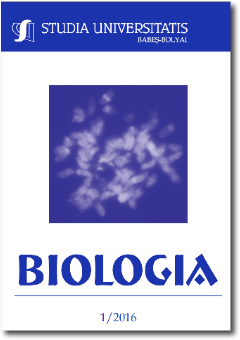The Application of Combinatorial Biotechnology in Improving Potato Resistance to Biotic and Abiotic Stress
Abstract
The concept of combinatorial biotechnology was introduced in previous presentations to international conferences in order to emphasize the importance to combine many tools of biotechnology, including phenomics, genomics and metabolomics, for the final goal to improve plant resistance to biotic and abiotic stress. This concept is exemplified here by a few examples in improving potato crop, one of the most important security crops worldwide and the third important crop as productivity at global scale. This crop is amenable for such improvement for some reasons: it responds well to tissue culture, somatic hybridization and transformation in vitro, its genome was sequenced and has got a rich resource of wild resistant relatives in the center of origin of potato crop. Moreover, potato is one of the crops facing great loses because of many diseases and pests, some of them causing total loss of production. The case studies presented in our work involve the use of sexually incompatible Solanum bulbocastanum and sexually compatible S. chacoense species as resources of multiple resistance genes, such as resistance to late blight caused by blight potato famine agent Phytophthora infestans, Colorado potato beetle and the abiotic stress caused by drought. Another example is genetic transformation with a marker free hair pin construct for PVY resistance combine with stress selection in vitro for tolerance to draught.
Downloads
Published
How to Cite
Issue
Section
License
Copyright (c) 2016 Studia Universitatis Babeș-Bolyai Biologia

This work is licensed under a Creative Commons Attribution-NonCommercial-NoDerivatives 4.0 International License.





